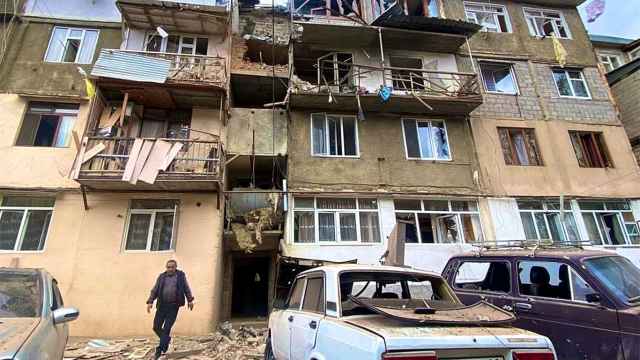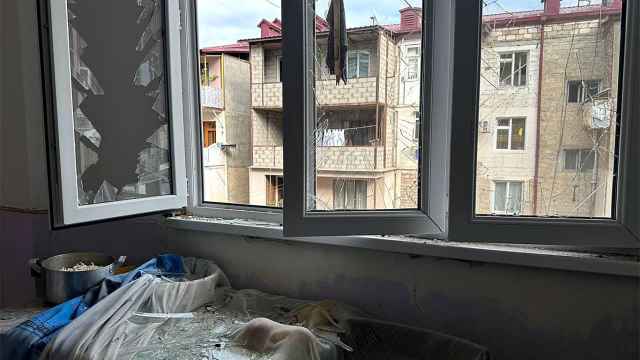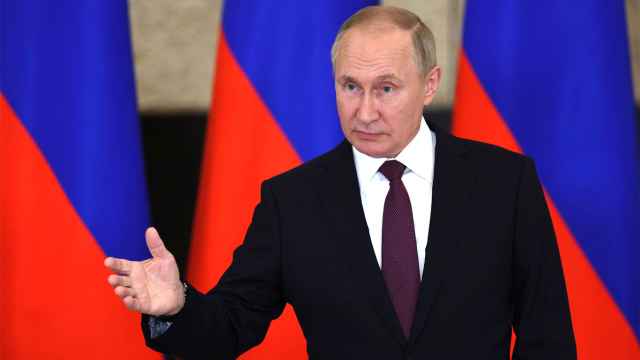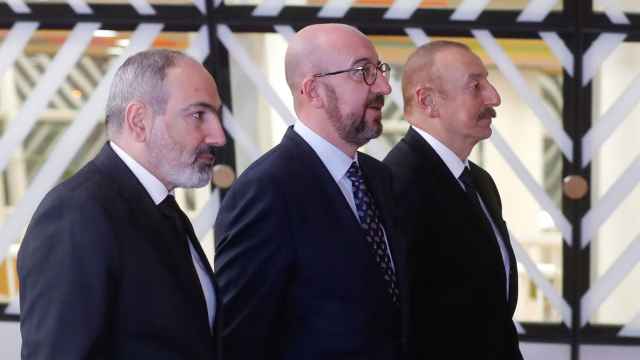Azerbaijan accused Russia on Sunday of failing to fulfill its obligations under a 2020 Moscow-brokered ceasefire agreement to end fighting with Armenia for control of the Nagorno-Karabakh region.
"The Russian side did not ensure full implementation of the agreement within the framework of its obligations," Baku's foreign ministry said, adding that Moscow "did nothing to prevent" Armenia's military supplies from reaching separatist forces in the restive enclave.
In autumn 2020, Russia sponsored a ceasefire agreement that ended six weeks of fighting over the mountainous breakaway region.
The deal saw Armenia cede swathes of territory, while Russia deployed peacekeepers to the five-kilometer-wide Lachin Corridor, the sole land link between the enclave and Armenia.
Baku recently closed the corridor, sparking protests and fears of a humanitarian crisis.
On Saturday, Russia's Foreign Ministry urged Azerbaijan to reopen the passageway.
It also said Armenia's recent recognition of Karabakh as part of Azerbaijan "has radically changed the standing of the Russian peacekeeping contingent."
"Under such conditions, the responsibility for the destiny of Karabakh's Armenian population should not be shifted onto third countries," it said, a possible reference to the Armenian separatists' calls for Moscow to ensure the reopening of the land link.
On Saturday, Azerbaijani President Ilham Aliyev and Armenian Prime Minister Nikol Pashinyan met in Brussels for EU-mediated talks aimed at resolving their decades-long conflict for control of Karabakh.
Baku and Yerevan have been trying to negotiate a peace deal with the help of the European Union and the United States, whose growing diplomatic engagement in the Caucasus has irked Russia.
In a bid to reassert its power-broking role, Moscow on Saturday offered to host the two countries' foreign ministers and suggested their future peace treaty could be signed in Moscow.
A Message from The Moscow Times:
Dear readers,
We are facing unprecedented challenges. Russia's Prosecutor General's Office has designated The Moscow Times as an "undesirable" organization, criminalizing our work and putting our staff at risk of prosecution. This follows our earlier unjust labeling as a "foreign agent."
These actions are direct attempts to silence independent journalism in Russia. The authorities claim our work "discredits the decisions of the Russian leadership." We see things differently: we strive to provide accurate, unbiased reporting on Russia.
We, the journalists of The Moscow Times, refuse to be silenced. But to continue our work, we need your help.
Your support, no matter how small, makes a world of difference. If you can, please support us monthly starting from just $2. It's quick to set up, and every contribution makes a significant impact.
By supporting The Moscow Times, you're defending open, independent journalism in the face of repression. Thank you for standing with us.
Remind me later.






